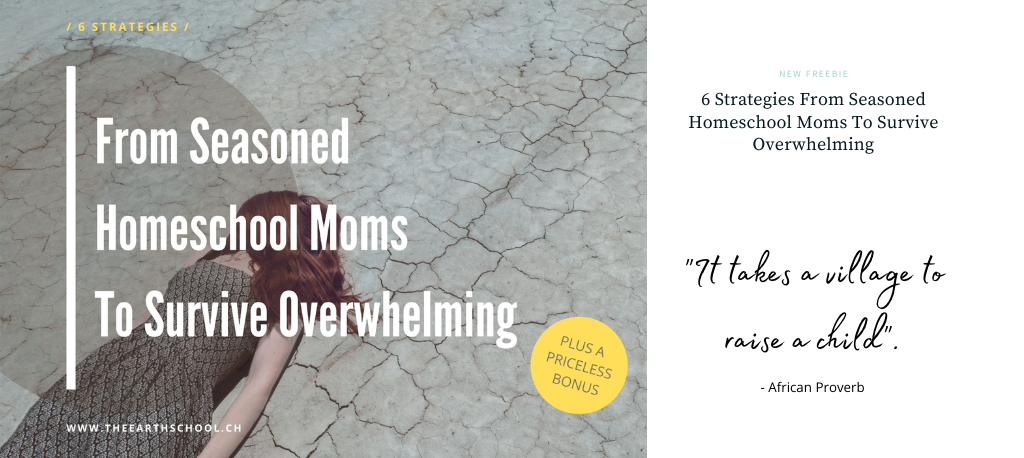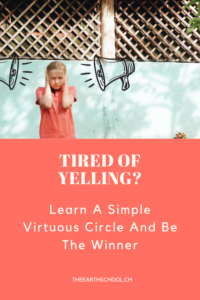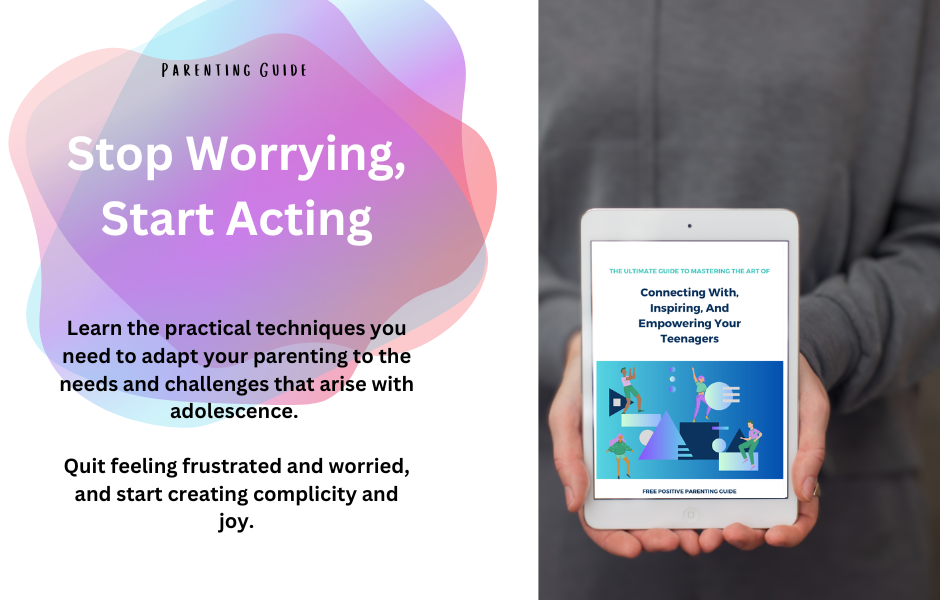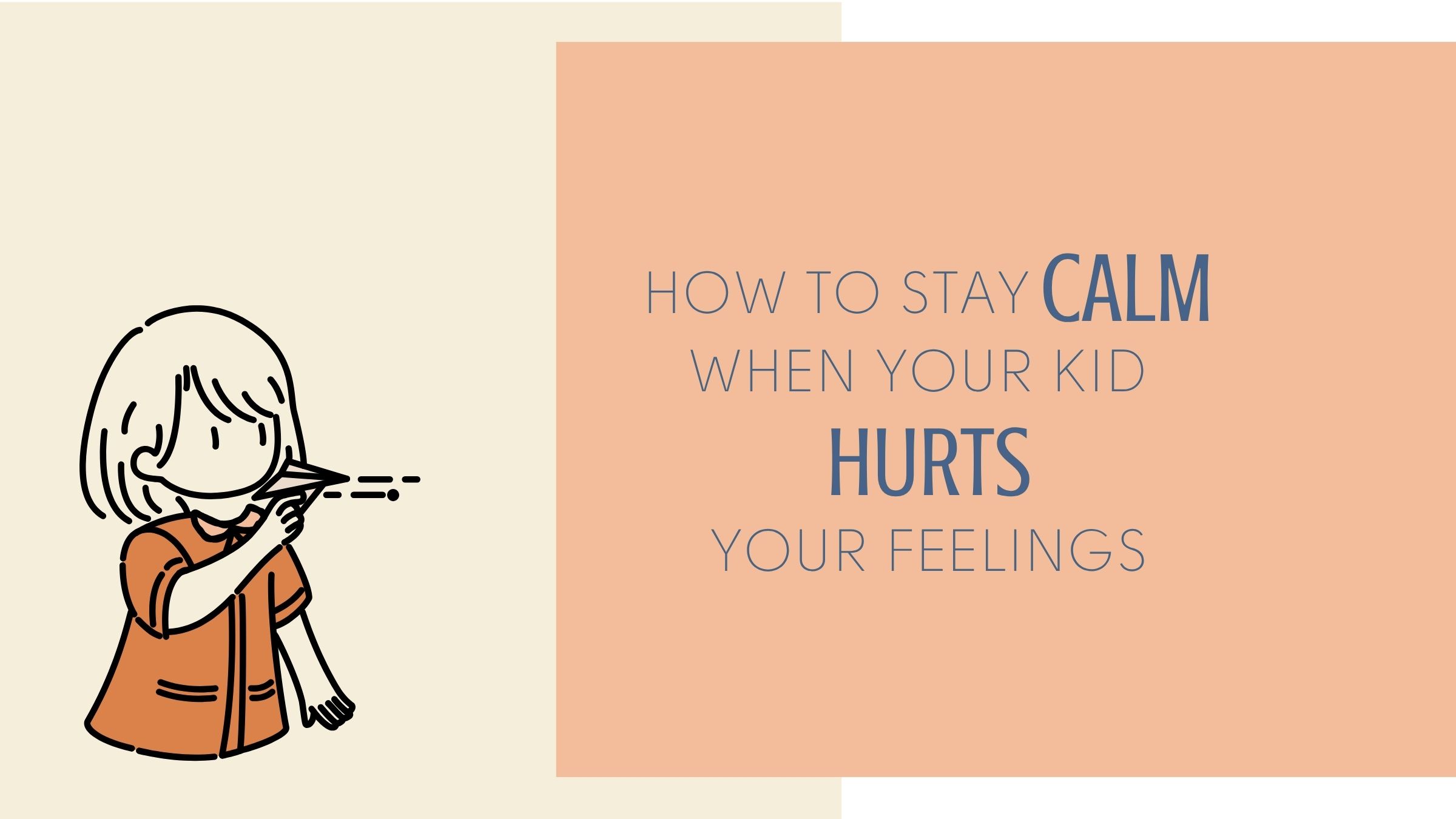
#36 How Emotional Skills Are Fundamental To Learning Abilities
Learning is the purpose of childhood. That’s the number one goal of every child on this planet. Even when they play they don’t do it for fun but to learn.
Children are wired to learn as a survival skill. Like any little animal on Earth, they are genetically programmed to learn how to do things by themselves, for one day they will have to be autonomous.
Now here are some questions for homeschool families: are we helping our children to learn? What skills do they truly need and are we nurturing them?
Don’t like being told what to do either? Download the PDF and read when you decide!
How Children Learn, A Quick Reminder
For their first 7 years, children learn mostly through their senses, gently practicing more intellectual actions along the way. From 7 years old on, they pay a lot of attention to adults around them and learn by imitation mostly.
From 14 years old, they have the same intellectual abilities adults have, some of which younger children don’t possess at all, like abstract thinking.
The human brain is made to learn using a scientific process: first, the children wonder about something, then they make a hypothesis, then they experiment to test the hypothesis, and finally, they come up with a result.
This process is easy to observe with babies, for example when they try to figure out how to use a spoon. But it’s also used for more abstract concepts like cause and effects.
As children grow up, more and more of this process takes place in their mind, until they reflect entirely in their head.
And yet, while children are wired to learn, our western world doesn’t make it easy for them.
The Western Idea Of A Child’s Education
In our world, after decades of using child labor, some progress has definitely been made.
While the first schools were merely an excuse for the Christian church to spread its message, the modern ones are more secular… But not necessarily less manipulative. The goal of schools shifted from teaching Christianity to Capitalism (that’s the homeschool mom speaking!).
But no matter the ideology, the way schools work has always been the same: “let’s fill those children”.
Children are seen (less and less but it is still a wide view) as empty, fragile, and tractable. In consequence, adults believe that they have to fill children with a lot of knowledge, good manners, and values such as “hard work” etc.. .
Let’s be honest, school isn’t about helping children to thrive, find their true passion, and be happy. Though I’m sure many teachers would love to do that.
So, children meet their first difficulties learning when faced with our western-style education system. What we want to do (fill them with knowledge) versus what they feel they should do (explore and experiment) creates an internal conflict.
And no matter how progressive you are, there is a good chance those values exist within you, we all grew up with them.
To help our children learn better, we need to lighten this internal conflict.

Emotional Skills To Overcome Internal Conflict
How can a child grow and thrive with contradictory ideas? Not only during childhood actually, but their whole life, when they encounter ideas that contradict what they believe?
They should decide for themselves and be in charge of their own life, and not let others decide for them.
How do you do that with a 5 years old child, you might wonder…
Simply with decision-making. The more your child will get to make decisions, practice autonomy in choices, and understands the consequences, the less they will need others to do so.
Giving your children the possibility to make choices doesn’t mean that you lose control. You can do it in a way that will actually be great for you because your children will become more and more autonomous.
You need to spot and acknowledge your needs in order to make good decisions, so decision-making help children grow their emotional skills too.
It is snowing outside, what clothes do I need? It is too noisy here, what can I do to answer my need for calm?
Though this paradigm between the way children naturally learn and the way we teach them is a part of the problem, there are several other aspects of learning to consider for children to learn properly.
One you wouldn’t think of is your goodwill. Yes, you might be doing too much.
Remember this lesson your whole life, download your free cheat sheet!
Learning Abilities Need Room To Develop
Think of what the world must have been like 200 years ago. No cars, no electricity, no planes,… Everything took time, the world was a quiet place and humans were following the pace of nature.
I’m not saying it was nice to live in a world with no antiseptic, no hospital, and no hygiene. I am grateful for what I have. But I want you to realize the difference in pace and stimuli.
Think back to yesterday, how many stimuli did you encounter that your great-grandmother wouldn’t have? The radio, the television, your phone… Just imagine how many stimuli you get from a trip to the grocery store: the noise of your car, the speed of the highway, the traffic, the ads, the crowds, the music in the shop, the colors, the lights…
And everything goes so fast! High-speed internet, cars, planes, technology,…
Curiosity is a Fundamental Emotional Skills To Learning Abilities
The modern world goes fast and is full of stimuli. But children’s way of learning hasn’t evolved in 3 generations. They still need to wonder, explore and deduce.
Do they have the time to do so? Do you let them wonder? Do you let them be bored?
Think of your weekly program, is it full of homeschooling, activities, craft, music classes, sport, and art?
In order to become good learners, children need to develop their inner curiosity.
Curiosity is a powerful drive, it is the spark that gets children to wonder and want to know the answer. It’s what put them in motion.
If the answers arrive before the questions, curiosity dies. If information comes continuously and isn’t what your child needed, curiosity dies.
Here are 5 things you can do to nurture curiosity:
- Let children wander
- Encourage them to wonder
- Answer questions but not with too much information
- Show them the strange things around you
- Be curious yourself and express it
If curiosity is just the spark, what keeps children going after that?

How Perseverance Is A Drive To Learning Abilities
Let’s say your child wants to learn the violin. Maybe they saw someone play in the street and it sparked their interest.
They’re curious enough they want to try. But what will get them to play the same tune again and again until they master it? What will motivate them to overcome the frustration of discovering that it takes years to play properly?
If having goals and dreams is a drive, it is important to keep reality part of the equation. For instance, I’ll never be an astronaut, as I have dyscalculia (Like dyslexia but for numbers, I always mix them up). If your child has the mental and physical abilities to play the violin, then all they’ll need to succeed is perseverance.
“Perseverance is the nobility of obstinacy.” – Adrian Decourcelle
Perseverance exists when we stay connected to our emotions and desires while being aware of our potential. Then we can accomplish great things.
If playing the violin gives me joy, I can tap into that when frustration takes over. If I have self-confidence, I can rely on that when a piece is more difficult to learn.
Perseverance is the mother of hope and motivation. By learning to gain from our failures and mistakes, we discover that we’ve been moving forward.
Obstinacy is like hitting a wall over and over again, perseverance means acknowledging the wall and finding a way around it.
Here are 5 things you can do to nurture perseverance:
- Support your child through their failures
- Remind your child of the positive emotions associated with their goal
- Celebrate the wins, big and smalls to nurture satisfaction
- Name your children’s strengths and abilities
- Help them find out what abilities they need to work on
How Emotional Skills Are Fundamental To Learning Abilities
Learning abilities are, by themselves, abilities that will allow your child to learn by themselves their whole life. It makes me think of that saying we often use in social work:
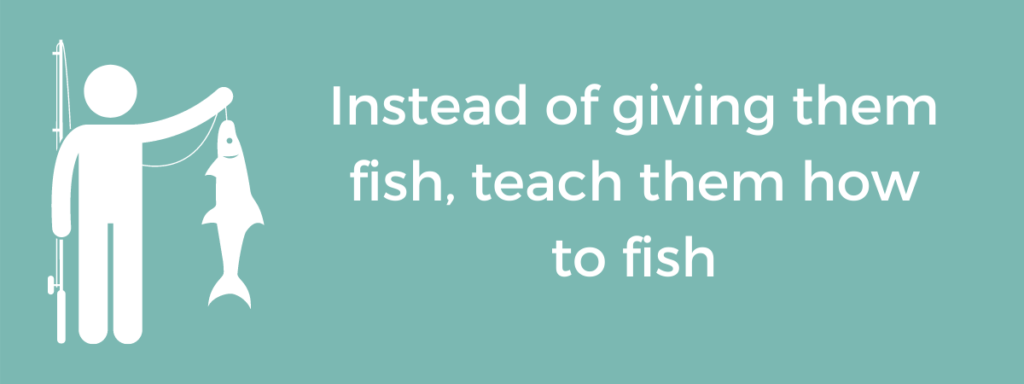
There are three paramount supports to learning abilities that we covered today:
- How children learn
- Curiosity
- Perseverance
The core to all three of these things is the ability for children to trust themselves and their needs. Learning to be connected to their emotions allows them to grow this trust and their capacity to listen to it.
As parents, we will never beat the intrinsic motivation a child can create for themselves, for a motivation from within is more powerful than any exterior ones.
Mostly, it is a difficult exercise for parents to turn things around. Instead of teaching things to your children and hoping they’ll get interested in them, you can listen to their interests and teach from there.
It doesn’t mean you don’t get to choose anything. Children look at their parents as role models and usually share their interests naturally.
Let’s say you’d like your children to learn more about geology, going on hikes and wondering about rock formations and landscapes mysteries will raise their curiosity. As well as create a positive emotional background (the joy of hiking, of outdoors, of sharing an experience with you) to support their perseverance!

Don’t let the inspiration fades and take action right away:
1. Download our cheat-sheet, it’s on the house. Decide on one action you will implement from today and write it down
3. Share this article with a friend who could benefit from it
4. Join us on Instagram for more great content
I wish you all the best with your kids, always remember that we all do the best we can at a given moment, so never judge yourself harshly. Be confident and listen to your intuition. If what you do comes from a place of love, then you’re on the right path.
See you next week for another exciting article!

Do you want more?
Don’t Forget To Join Our Community To Get Inspiration And Tips Straight in Your Mailbox
I wish you all the best with your kids. Always remember — we’re all doing the best we can in any given moment, so try not to judge yourself too harshly. Be confident and listen to your intuition. If what you do comes from a place of love, then you’re already on the right path.

If this post resonated with you — if you’ve ever walked ten paces behind your child, wondering if you’re ruining everything — come join us on Instagram.
It’s where I share reminders, reflections, and the odd parenting confession… for mums figuring it out one heart-twinge at a time.

